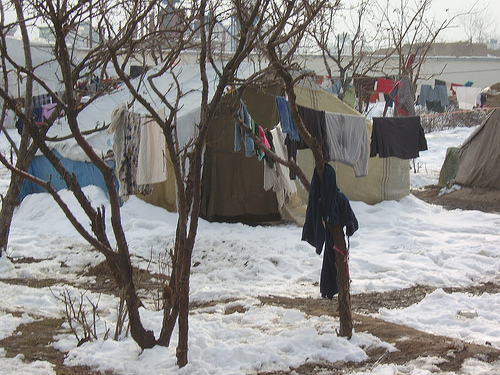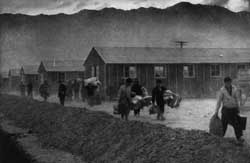
UPDATE: The Guardian is reporting that the Facebook page has been taken down! No explanation has yet been offered as to why, just days after it debuted, the Auschwitz Memorial fan page has suddenly disappeared. Those 2000 fans will be sorely disappointed.
There is really no good way to get young people hyped about remembering the Holocaust. Faced with the extremely advanced age of remaining survivors, the increasing vehemence and prominence of Holocaust deniers, and the pervasive fear of collective amnesia, Auschwitz, the infamous Nazi death camp, did something drastic. They created a Facebook page.
You too can join the more than 300 “fans” of the Auschwitz Memorial, though some users may be put off by having “Fan of Auschwitz” appear at the bottom of their profile. Others may have a hard time finding the “official” Auschwitz page among a surprising number of unrelated groups also dedicated to never forgetting. The Polish authorities charged with running the site have issued a response to those who worry that Facebook trivializes the more than one million people, mostly Jews, who died in the camp:
Auschwitz Memorial is experimenting with new ways of reaching and educating people – such as Facebook. There are many contemporary issues connected with historical memory and there are contemporary problems that we must solve now, after 65 years. The question is – should Auschwitz Memorial, as an institution, be closed for such new possibilities as Facebook with millions of people?
The camp has also launched a YouTube channel dedicated to education and memorial.
To be fair, anti-Semitism and Holocaust denial are a much bigger deal outside of America, and quite notably in Poland. A Polish-Jewish friend likened fighting anti-Semitism there to cleaning muck from a sewer.
But how to rebrand the Holocaust for the first generation who will likely grow up without ever meeting a survivor is a nagging question. The German town of Dachau, where the first concentration camp was built in 1933, recently made headlines when it became a sister city to Israel’s Rosh Haayn, about 20 miles outside Tel Aviv. Cities across Germany have made similar connections to Israeli towns, but Dachau is the first former camp site to do so, and many survivors were up in arms.
“Obviously the people in Rosh Haayn know nothing about the Holocaust,” said Moshe Sanbar, 84, a Dachau survivor and former director of the Bank of Israel. “Our people were worked to death there. Why can’t they now let us die in peace?”
The camps can keep reaching out, but will skeptics ever accept the friend request?











